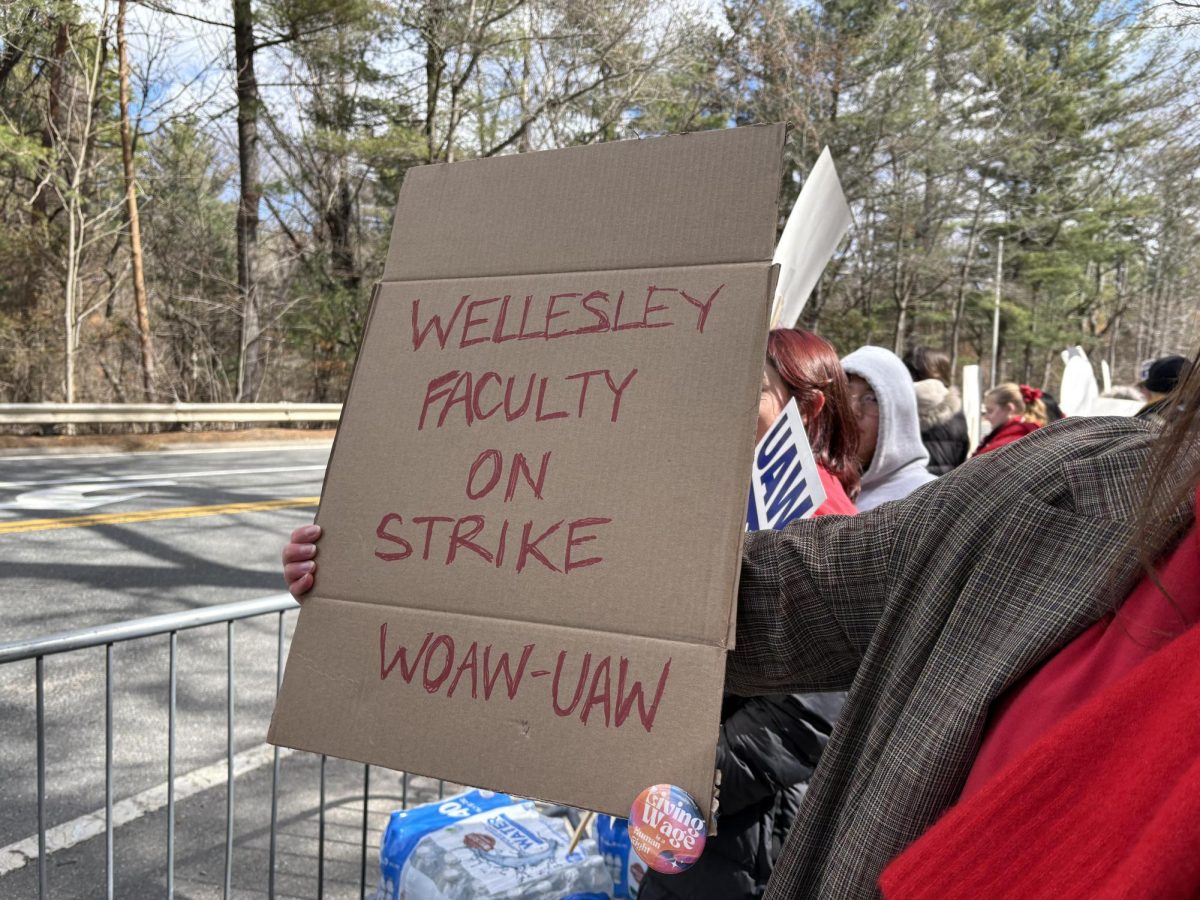All student names used in this article are pseudonyms to protect the anonymity of interviewees who fear harassment and disciplinary action.
In early December of 2023 at the end of the fall semester, student organizers at Olin College of Engineering put up posters to bring awareness to how Olin-founded company Skydio is providing the Israeli military with drones to use in the attacks following Oct. 7. On Jan. 29, Olin students claimed they witnessed Babson police taking down the posters in their student campus center.
The posters that were taken down contained the following text: “Olin-founded company, Skydio, has sent more than 100 drones to Israel, with ‘more to come.’ Skydio is complicit in genocide. SKYDIO, WE SEE YOU.”
Oscar, an Olin student who helped with postering, detailed his interaction with police officers removing the posters. “We actually saw a Babson police officer taking down our posters, so I went to just ask them, ‘How is it in the police’s jurisdiction to take down student postings?’ and the officer said that they are employed by Olin College and got a direction from the administration to take down any policy relating to ‘the conflict.’” According to the student, Olin does not have its own campus police department, so they hire Babson police for campus security needs.
He also claimed that the administration is planning to take further measures to identify students postering. “We heard that the next time people put up posters, [administration] will look at the CCTV footage and those people may or may not be subject to disciplinary action.”
The posters also included a QR code, with a link to a Politico article that addresses the political and ethical concerns of cutting-edge artificial intelligence technology produced in the United States being used by the Israeli military to target Palestinians.
According to the article published on Nov. 23, Israel contacted Skydio hours after the Oct. 7 attacks with requests for short-range reconnaissance drones. These drones are small flying vehicles that the US military uses to navigate obstacles and produce 3D scans of complex structures like buildings. AI ethicists have pointed to reports that since Oct. 7, the Israeli army has used AI to strike more than 11,000 targets in Gaza.
The article quotes Matt Mahmoudi, author of Amnesty International’s May report, who commented on how historically, US technology companies contracting with Israeli defense have little insight and control over how their products are used, with several instances of the Israeli military using imported technology to closely monitor the movement of Palestinians.
Oliver, another student involved with organizing for Palestine at Olin, said he felt that Olin’s branding and education stood at odds with its ties to Skydio. “Olin is an engineering college, founded by Franklin W. Olin, who made his money by manufacturing ammunition. Olin has really strong military ties, as do a lot of engineering schools in the US, but we also try to be hashtag different. We’re lectured on ethics in engineering, and our motto is ‘Engineering is for everyone.’ When you see an Olin startup, which started out as a recreational drone company, now contracting with the military and sending drones to the Israeli military, where does ethics actually come in?” asked Oliver.
Otto, another Olin student organizer, elaborated on Oliver’s sentiment. “As engineers, it feels like we are even more implicated.” They explain that the close connections between Olin, which uses the success of the startup to bolster its reputation, and Skydio, which recruits from Olin, make Skydio a more realistic target.
“Skydio is Olin’s golden child. A decent amount of students work there afterwards. It doesn’t feel like I can push Lockheed Martin because they’re huge, but Skydio does care about recruitment at Olin. It’s important to let them know that students are not okay with what they’re doing.”
Alisha Sarang-Siemenski, the dean of Student Affairs and a professor of engineering at Olin College, sent out an email statement to Olin students addressing the posters on Skydio on Dec. 7, shortly after the initial round of posters was put up.
“You may or may not have seen posters around campus yesterday and today. They have been taken down, and I want to tell you why. Antisemitism is rampant, and has been increasing, everywhere in the world. By taking the posters down, we are addressing an immediate harm that people in our community are experiencing. Because of the immediacy of this harm, we were not able to take a nuanced approach to removing the posters with respect to concerns about the impact of their content (the part of the posting policy they are found to be in violation of).”
Oscar said he felt insulted by the statement. “The Dean of Students basically equated being Jewish to being a Zionist. I thought that was incredibly antisemitic and out of touch.” He continued, “I am Jewish, and them accusing me [of antisemitism] is perfect in pointing out their hypocrisy.”
He addresses the administration’s rationale for removing the posters.
“There are provisions made for anonymous postings in the posting policy, and the posters were obeying the posting policy. Stop hiding behind the technicalities of a system you put in place to silence students.”
Otto is concerned that administration will override student councils to punish the students involved in postering.
“Admin ultimately has the decision-making power on disciplinary sanctions. I don’t think that there is anything stopping them from not going through the student-run honor board and unilaterally placing sanctions.”
The Wellesley News reached out to Olin’s Office of Strategic Communication with a request for comment but did not receive a response.
Oliver discussed how, especially with Olin being such a small school, organizing can be difficult, as student activists fear backlash from other students, faculty, or administration.
“We’ve seen what’s happened at Wellesley, at Harvard, and we don’t trust admin to protect us.”




